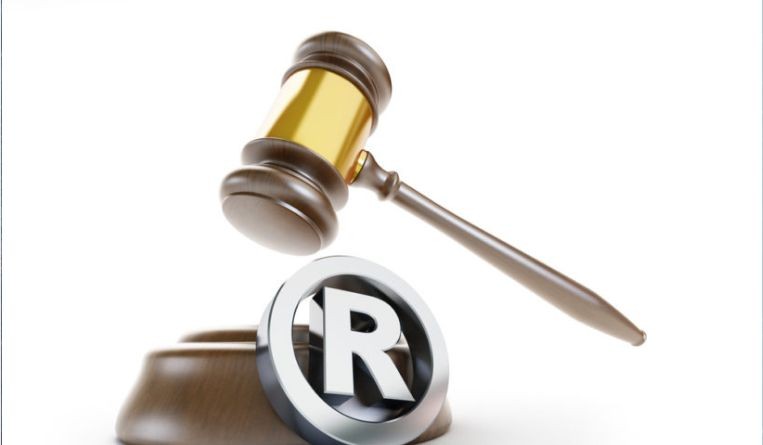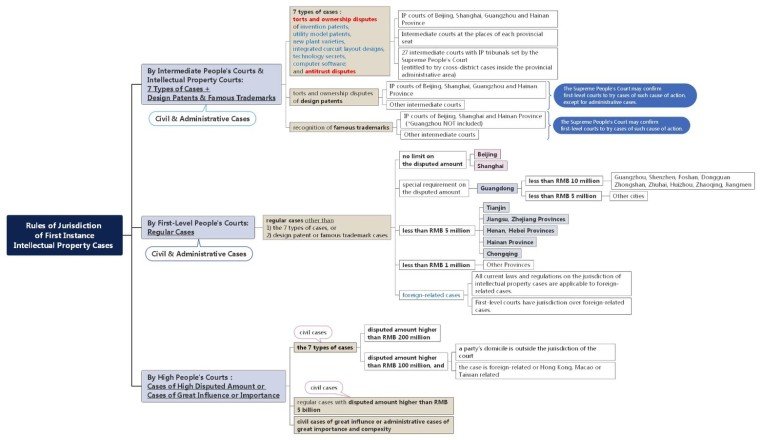In China, diversified intellectual property rights infringement settlement mechanisms generally include cease and desist (C&D) letters, administrative means, civil litigation, arbitration settlement and criminal charges, etc. The right holder can choose the best way according to his/her own needs and the characteristics of various reliefs. This paper will comprehensively discuss the measures often used in practice to deal with intellectual property infringement.
Cease and desist letter
Approaching the infringers directly, usually with a C&D letter, is the least time-consuming and most economical way of IPR enforcement. However, the results of this approach often depend on the attitude of the infringer.
If the infringer is bona fide and trustworthy, sending C&D letters could, to a certain extent, achieve the results of stopping the infringement, or at least establish a channel for further communication and final dispute resolution.
If the infringer is, on the other hand, of malicious intent, any letter or warning from the IPR owner is likely going to be ignored and the infringement continued as the way it was. However, the IPR owner can use this ignorance and continuation as a factual basis to prove the bad faith of the infringer part and claim punitive damages in subsequent civil litigations.
Administrative protection
Administrative protection has been proved particularly useful and effective in China in light of China’s national conditions, i.e., having a strong, effective, and encompassing-all-aspects-of-life government. However, the obvious downside of this approach is that it does not address the issue of compensation. IPR owners must negotiate with the infringer separately or file a lawsuit if he/she wishes to recover losses resulting from the infringement.
Specific proceedings vary depending on the IP rights sought for protection, with the patent-related infringement cases singled out due to its complexity and involvement of technical expertise.
Patents: Administrative adjudication
Article 65 of the Patent Law of China provides that, patent owners or relevant parties (such as licensees) could request the local patent law enforcement authorities (i.e., Administration for Market Regulation or AMRs) to handle patent infringement, as an alternative to filing a court action. And according to the regulation and guidelines promulgated by the China National Intellectual Property Administration (CNIPA) in 2019, a semi-judicial proceeding called administrative adjudication would be entered over the complained case.
An administrative adjudication proceeding has a lot in common with civil litigations. The parties in both proceedings get to examine and question each other’s evidence, advocate for themselves in oral or written form, and ask experts to testify for them. On request, the handling authorities in both proceedings could take their own investigation and preserve evidence. And both authorities must decide on whether patent infringement is established and issue prohibition orders once it is.
It should be noted though, AMR investigation measures include only questioning relevant individuals, inspecting the premises of allegedly infringing acts, and inspecting the allegedly infringing products. Reproducing relevant documents of the infringer and sealing up/ seizing the allegedly infringing products, measures regarded as the most compulsory and effective, are not available in administrative adjudications.
Non-technical IP rights
For other IP rights that do not relate to complex technological issues, infringement determination is comparatively simple and straightforward. Law enforcement authorities usually could come up with their conclusion without hearing arguments from both sides. So, the Chinese laws and regulations do not provide for semi-judicial proceedings when the IP owners ask for administration protection.
For example, when a trademark or copyright owner (or a relevant party) suspects her IP rights are being infringed upon, she can draw the matter and preliminary evidence to local law enforcement authorities (AMRs for trademarks, Bureau of Culture and Tourism for copyright) by filing a complaint and asking the authorities to investigate and punish the infringer once IPR infringement is established.
For the authorities’ part, they would review the complainant’s documents and refuse taking those apparently non-infringing cases. If they decide to take the case, they can take all necessary measures prescribed by the laws in order to investigate, including inspecting and/or reproducing the relevant documents, and sealing up and/or seizing the allegedly infringing products. Once infringement is established, the authorities would impose on the infringer permanent injunction and economic punishment.
In addition, the authorities could also launch ex-officio actions against IP infringements. In such cases, the authorities would often contact the IP owner for verification and authentication, and the IP owners could then step in for following up.
Civil litigation
Compared with the first two approaches, civil litigation is the most expensive and time-consuming. But the preliminary reliefs provided by the Chinese courts make that up to some extent. On the other hand, compared with the administrative law enforcement authorities, the courts are more flexible and tend to be more lenient in practice when determining the establishment of IPR infringement, which could result in better chances of success for IPR owners to obtain protection.
IPR owners can obtain damages and have the infringers bear the reasonable expense in enforcing the IPR, which is not available or very difficult to get under the first two approaches.
Venues and jurisdiction
Like the administrative IP enforcement actions, there have also put into place the differences as to which level of courts could hear what type of cases depending on the IP right sought for protection.
Depending on the real-time local circumstances, the Supreme People’s Court of China (SPC) has, over the years, adjusted the Chinese courts’ jurisdiction over IP-related cases from time to time. Though accommodated the need of the regional reality, it had caused some confusion among IPR owners as to venue choosing and further strategy formulating. In May 2022, the SPC redrew the jurisdiction map once again and published the standards on a national basis, allowing IPR owners to easily figure out possible venues.
See the chart below for the up-to-date jurisdiction demarcation of the Chinese courts on IP-related cases.











